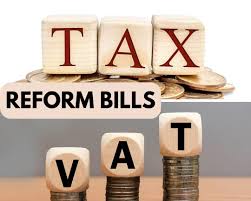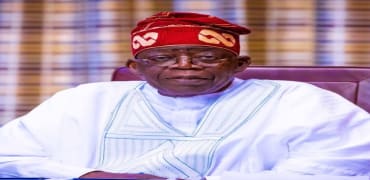National Assembly Set to Pass Tax Reform Bills This Week
National Assembly Set to Pass Tax Reform Bills This Week
By Achimi muktar
After months of legislative back-and-forth and intense deliberations, Nigeria is on the verge of a major tax transformation. The long-anticipated Tax Reform Bills are finally set for passage this week, following the successful harmonization of outstanding grey areas between the Senate and House of Representatives.
This legislative milestone, which promises to reshape Nigeria’s tax landscape, is the result of meticulous work by the Joint Harmonisation Committee, comprising members from both chambers of the National Assembly. The committee was tasked with reconciling the differences in the four bills earlier passed in separate versions by the House and Senate.
In a significant development shared on social media, Hon. James Abiodun Faleke, Chairman of the House Committee on Finance and leader of the House delegation, announced the completion of the harmonisation process. In his post on X (formerly Twitter), Faleke revealed that after a marathon deliberation stretching from Thursday night through to early Saturday, the committee had addressed all contentious clauses.
“The Conference Committee set up by the House and the Senate on the Tax Reform Bills has successfully concluded its work,” Faleke stated. “All grey areas have been resolved. The bills are now ready for presentation to both chambers for final passage.”
The four tax bills, crucial components of the federal government’s broader economic reform agenda, were initially passed by the House of Representatives in March, just before the Easter and Sallah recess. The Senate followed suit shortly after their return from the Easter break, prompting the need for harmonisation to ensure alignment.
The process gained fresh momentum after President Bola Ahmed Tinubu, speaking at the maiden All Progressives Congress (APC) Summit, made a direct call for swift legislative action to finalize the reforms. Tinubu emphasized the importance of a reformed tax regime in driving economic growth, widening the revenue base, and improving the business environment.
According to insiders, the harmonised bills will not only simplify the country’s tax structure but also address loopholes and ensure fairer, more transparent practices across sectors.
Faleke expressed gratitude to his colleagues, including Senator Sani Musa, Chairman of the Senate Committee on Finance, for their cooperation and dedication.
“This is a win for the Nigerian people,” Faleke said. “We are paving the way for a more accountable, efficient, and growth-friendly tax system.”
As the final versions head to the floor of both chambers, expectations are high that the passage of these bills will mark a turning point in Nigeria’s economic recovery and fiscal sustainability journey.
Stay tuned—Nigeria’s tax system may never be the same again.


















